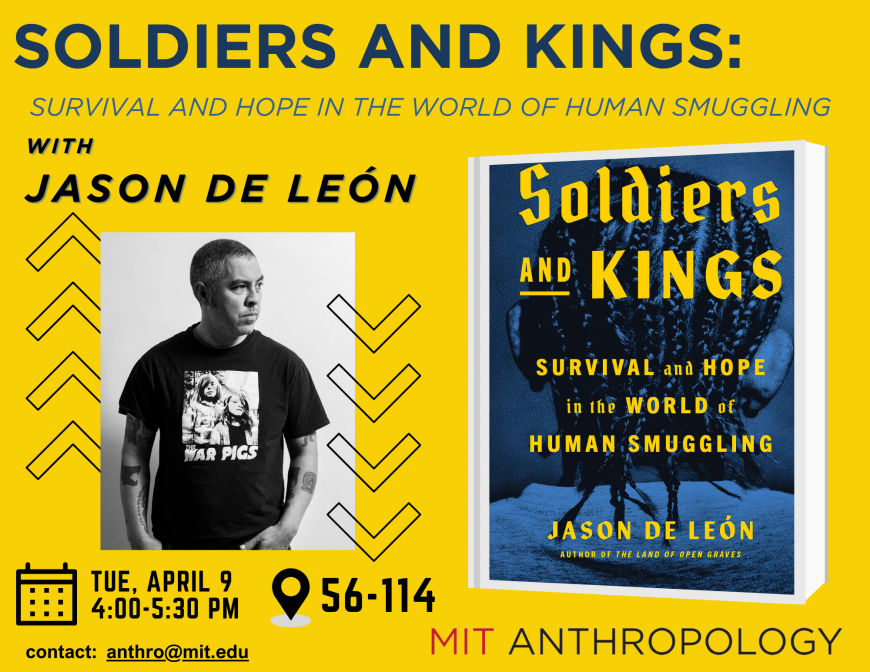Jason De León Book Talk "Soldiers and Kings: Survival and Hope in the World of Human Smuggling"

Jason De León
Director Cotsen Institute of Archaeology | Professor of Anthropology and Chicana/o and Central American Studies UCLA
April 9, 2024 Tue, April 9 4-5:30pm 56-114
"Soldiers and Kings: Survival and Hope in the World of Human Smuggling" book talk by Jason De León - Director Cotsen Institute of Archaeology | Professor of Anthropology and Chicana/o and Central American Studies UCLA | Executive Director of the Undocumented Migration Project
In 2014, Mexico (with financial and logistical support from the Obama administration) launched Programa Frontera Sur, a security enforcement project aimed at stopping Central American migrants from reaching the U.S./Mexico border. Under this program, Mexico has dramatically increased arrests and deportations while simultaneously making the migration journey more arduous and deadly. In response to this heightened security, migrants have turned to transnational gangs such as MS-13 who have become increasingly involved in the human smuggling industry over the last decade. In this talk I discuss my new book "Soldiers and Kings", a long-term ethnographic study focused on understanding the daily lives of Honduran smugglers who profit from transporting migrants across the length of Mexico. Using the stories of several smugglers, I examine the relationship between transnational gangs and the clandestine migration industry, as well as the difficulties of doing ethnography in this violent and ethically challenging context.
